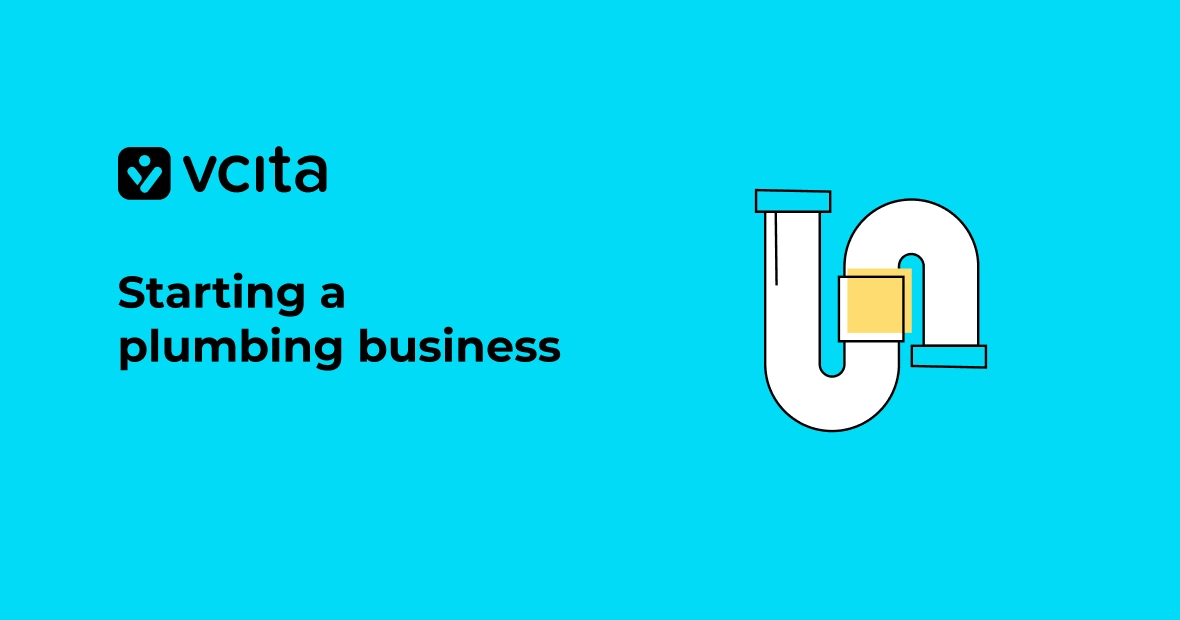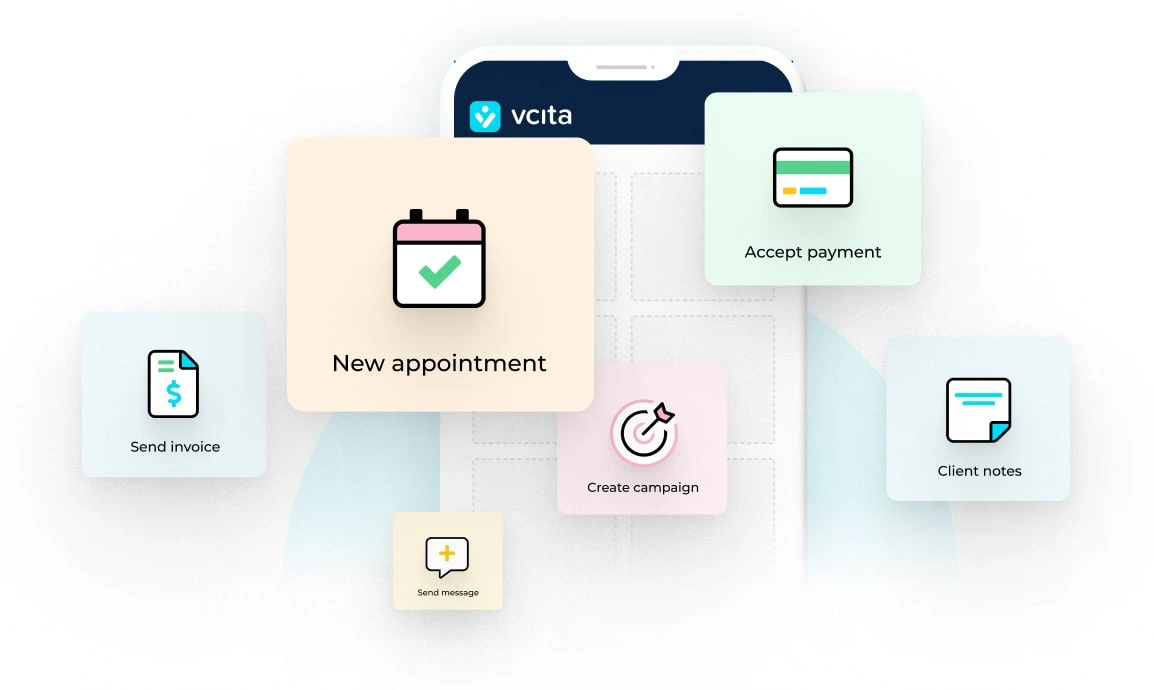So you’ve been plumbing for years, and now you’re ready to start your own plumbing business. While starting any service business comes with risks, the rewards of being your own boss are huge.
The key is having a solid plan in place. There are lots of decisions to make and requirements to complete, like choosing your business structure, building your brand, and investing in the right tools. But we’re here to help guide you through the process of building a successful plumbing business.
Laying the groundwork: getting certified and registering your plumbing business
Before you can dive into your first job, there are a few essential steps to take.
-
Get your plumbing certification
In most states, plumbers need to be licensed, either as a Journeyman Plumber or as a Master Plumber. You might need to study plumbing and pass a trade exam, or complete a certain number of hours of experience working as an apprentice plumber, or both. Once you’ve passed, you can register as a licensed plumber in your state.
-
Choose a business structure
Next, decide how you want to set up your company legally. Many plumbers opt for an LLC, which limits your personal liability and gives you more flexibility when filing taxes, but you could also open a sole proprietorship, which is faster to set up. You’ll also need to register your business name, and get an EIN from the IRS so you can hire employees and open a business bank account.
-
Build your plumbing business plan
A well-crafted business plan is key to helping you get funding and stay on track when running your business. Read on to learn how to put together an effective business plan that will convince your bank to support your new company.
-
Invest in high-quality equipment
Reliable tools are essential for any plumber, so don’t skimp on gear that keeps you and your customers safe. Focus on purchasing equipment that will allow you to efficiently complete both residential and commercial plumbing jobs.
-
Think about pricing
You’ll need to determine how much to charge for your plumbing services. Consider both the going rates in your area, and your experience level. You’ll want to make a profit while remaining competitive, so you’ll need to balance the desire to lower prices with the need to maximize income.
Creating a business plan
As we mentioned above, writing a business plan is a vital step towards starting a service business. Here are the things you need to include in it:
- Business structure. Will you operate as a sole proprietorship, partnership or corporation? Each has its pros and cons, so choose what’s right for your situation.
- Services. List which services you’ll offer, like minor repair work, unblocking drains and toilets, or installing a whole new plumbing system.
- Set your goals. Setting goals is important. Describe your target customers, competition, and financial projections for at least the first year.
- Map your funding sources. Consider how you’ll fund startup costs and early expenses while you build your client base. Explore options like small business loans, lines of credit, crowdfunding, or investor capital.
- Plan your marketing. Map out how you’ll attract new clients. Include tools like your website and sites like Google My Business, Facebook, and plumbing service directories.
Equipping yourself: purchasing tools and getting insurance
Once you’ve gotten the proper certifications and licenses to start your plumbing business, it’s time to invest in the necessary tools and insurance to get up and running.
Tools and equipment
As a plumber, your tools are how you earn your livelihood. You’ll want high-quality equipment that will stand up to frequent use and allow you to tackle any plumbing job. The basics include:
- Pipe wrenches, pliers and cutters, for cutting, gripping and tightening pipes.
- Snake or auger for unclogging drains and pipes.
- Torch for soldering copper pipes.
- Levels, tape measures and marking tools for installation and repairs.
You may also want to consider more advanced tools like a pipe locator, sewer camera or hydrojetter, which can set you apart as you build your business. Just remember that it’s best to purchase tools gradually as your business grows, to minimize upfront costs.
Insurance
Every plumbing business comes with inherent risks, so insurance is a must. The major policies to have in place include:
- General liability insurance, which covers costs if anyone is injured due to a job you’re working on, or their property is damaged.
- Professional liability insurance, to protect you against errors and omissions in your plumbing work.
- Commercial property insurance that covers your tools, equipment, vehicles and office space in the event of damage or theft.
- Workers’ compensation insurance is required if you have any employees, as it covers costs for work-related injuries.
As a new business owner, insurance may seem like an unnecessary expense. But the right coverage will give you peace of mind and protect you financially in the long run. Take the time to meet with an insurance broker to determine how much and what kind of coverage is right for your plumbing business, based on the services you offer and number of employees. They can also help you find policies that fit your budget.
Attracting customers: marketing your plumbing business online
Online marketing is vital to attract new plumbing customers in our digital world. Most people search for local services on the internet, so by optimizing your online presence, you’ll increase visibility, build trust, and win more jobs. Here are some of the best ways to market your plumbing business online.
Build a website
An easy to use website with a modern design will make you appear more legitimate to website visitors, so create a professional website to establish your brand and allow customers to learn more about your business. Include details about your services, experience, credentials, and customer reviews.
Optimize your Google presence
Claim your free Google Business Profile to help customers find you on Google Maps and Search. Upload photos of your work, list your services, and ask for Google reviews, which build credibility and social proof that you provide quality plumbing services.
Pay for ads
Targeted ads and geo-fencing allow you to reach potential customers at the exact moment they’re searching for a plumber, so it’s worth it to invest in pay-per-click ads. You can also pay for Google’s Local Service Ads, to rank higher in search results for plumbing-related terms in your area.
Leverage SEO
Use small business search engine optimization, or SEO, to rank organically for local plumbing keywords. Higher rankings mean more visibility and clicks from people searching for a plumber. Optimize page titles, content, image alt text, and internal linking for terms like “plumber in [your city name]” or “emergency plumbing services [your city name].”
Make use of social media
Social media is a great way to build relationships, boost brand awareness, and keep your business top of mind, so set up social media profiles for your plumbing business on Facebook, Instagram, and LinkedIn. Post regularly about your services, completed work, plumbing tips, and more, and engage with followers by replying to their comments and messages.
Managing operations smoothly: scheduling jobs and building customer relationships with a CRM
Once you’ve gotten your plumbing certification and have a solid business plan in place, it’s time to start managing your new company’s day-to-day operations. A key part of running a successful plumbing business is keeping customers happy through efficient scheduling and building strong relationships.
This is where a customer relationship management (CRM) tool like vcita can help you keep everything organized and streamline operations. Here are the main ways that vcita helps your plumbing business run more smoothly.
Hassle-free scheduling
An online booking system like vcita lets clients schedule their own appointments 24/7 through your website. They can view your availability and book a time that works for them without having to pick up the phone or send emails back and forth, which saves time and irritation for both of you. vcita also sends automated reminders to avoid no-shows.
A central customer relationships hub
Using a CRM such as vcita gives you an easy way to store details for each client in one place. You’ll have their contact information, job history, notes, and more at your fingertips. This makes it simple to provide personalized service and build rapport. vcita’s cloud-based CRM can be accessed anywhere, so you always have the info you need whether you’re in the office or on a job site.
Reviews and referrals management
Happy customers are the best way to get new business. With vcita, you can send automated emails to ask clients for referrals to friends or family and reviews following a completed job. Positive Google reviews and word-of-mouth marketing from referrals are two of the most effective ways for plumbing companies to gain new customers.
Your own plumbing business can be a reality
Starting any service business is challenging, but once you know how to set up your own plumbing business, manage operations, and promote your services, you’ll be well on your way to building a successful plumbing company. Focus on offering amazing customer service and keeping all your business information organized and easy to hand, and you’ll soon see the profits pile up.




























